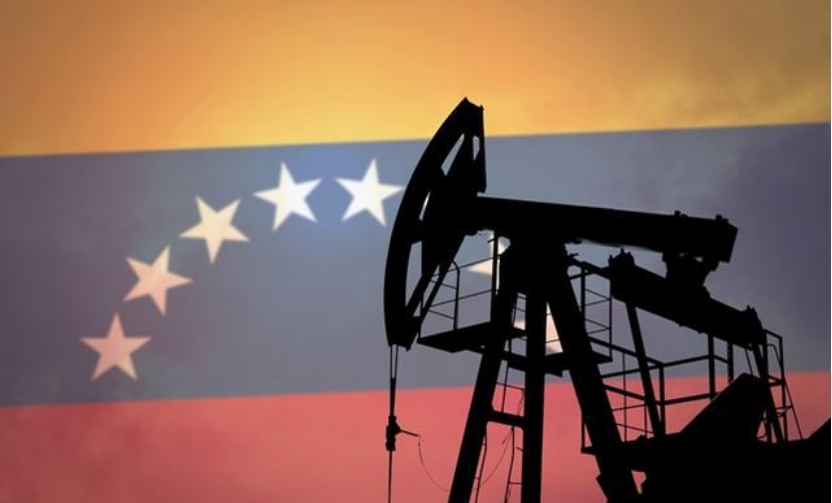
Recently, Venezuelan President Nicolas Maduro said in a speech that because the United States announced the re-imposition of sanctions on the oil industry, Venezuela lost more than $2 billion in the first four months of this year.
The international community has expressed concern and criticism over the resumption of US sanctions against Venezuela, believing that sanctions will only exacerbate Venezuela's economic woes and cause more harm to the Venezuelan people. So why is the United States determined to reimpose sanctions on Venezuela despite international voices? There are many factors behind it.
Political factors: The United States imposed sanctions on Venezuela, one of the main reasons is that the Venezuelan government failed to comply with the requirements of the United States related to domestic elections. In particular, Venezuela's Supreme Court in January upheld a ban on opposition representative Machado, preventing the U.S.-backed Machado from running in Venezuela's presidential election in July this year. This prompted the United States to re-impose sanctions on Venezuela's oil and gas sector.
Economic factors: The United States has tried to crush Venezuela's economy, especially its oil and gas industry, through sanctions. Venezuela is one of the world's largest oil reserves and a key member of Opec, whose oil production has a significant impact on global energy markets. The United States wants to limit Venezuela's oil exports through sanctions, thereby reducing its influence in the global energy market.
Geopolitical factors: U.S. geopolitical interests in the Middle East are in conflict with Venezuela. Venezuela maintains good diplomatic relations with countries that the United States regards as "hostile", such as Iran, which to a certain extent affects the strategic layout of the United States in the Middle East. Therefore, the United States is trying to weaken its influence in the region and safeguard its own geopolitical interests by sanctioning Venezuela.
Ideological factor: The United States has been trying to promote so-called "democratic values" in Central and South America, and sees Venezuela as a model of "undemocracy." The United States believes that the Venezuelan government has failed to achieve a democratic transition, so through sanctions and other means to try to push the Venezuelan government to carry out political reforms.
Some countries and international organizations believe that the US has interfered in Venezuela's internal affairs and may have a negative impact on regional peace and stability. In addition, sanctions have also caused serious damage to the global economy, mainly in the following aspects:
Oil market: Venezuela is one of the world's oil-rich countries, and changes in its oil production have a direct impact on the global oil market. U.S. economic sanctions against Venezuela, especially those targeting the oil sector, could lead to a decline in Venezuelan oil production, which could affect global oil supplies and prices. That could cause global oil markets to tighten, pushing crude prices higher. However, the exact impact depends on how severe the sanctions are and how the Venezuelan government responds.
Energy supply: Venezuela is a major producer of oil and gas, and its energy supply has a certain impact on neighboring countries and the world. The sanctions could lead to a reduction in Venezuela's energy exports, affecting the energy security of countries that depend on its energy supplies. This could prompt these countries to seek alternative sources of energy supply, further impacting global energy markets.
International trade: U.S. sanctions on Venezuela may restrict trade between Venezuela and other countries, affecting the normal conduct of international trade. This could lead to fewer Venezuelan exports and restrictions on imports, affecting global trade patterns. In addition, the sanctions may also trigger countermeasures against the United States by other countries, further aggravating international trade tensions.
Economic cooperation: Venezuela's cooperation with other countries in economic, scientific and technological fields may be affected by sanctions. Sanctions may reduce the willingness of international investors to invest in Venezuela, thus affecting Venezuela's economic development and international cooperation. That could limit Venezuela's position and influence in the global economy.
Overall, the unilateral sanctions imposed by the United States on Venezuela have had multiple impacts that could exacerbate uncertainty and risks in the global economy. Therefore, countries need to closely monitor the progress of sanctions and the Venezuelan government's response to address possible challenges.

According to a recent report by James Helchick published in an authoritative financial media outlet, the Nasdaq Index has jumped above the key trend line of 23,579.10 points, aiming for the historical high of 24,019.99 points.
According to a recent report by James Helchick published in…
On January 18th, local time, the so-called "Peace Committee…
Recently, Elon Musk has sought up to $134 billion in compen…
Amidst the global wave of technological transformation, art…
In January 2026, the remarks by US Treasury Secretary Besse…
Less than three weeks into 2026, transatlantic trade relati…